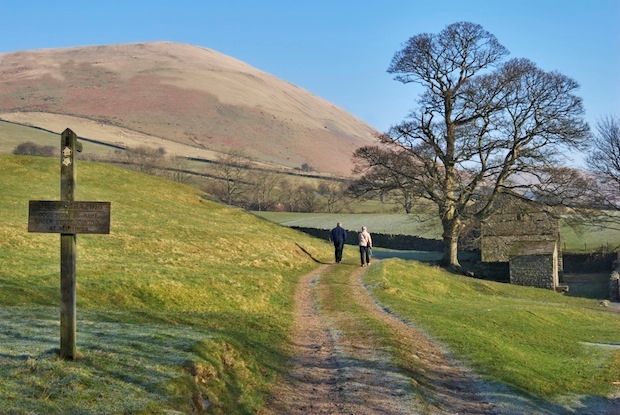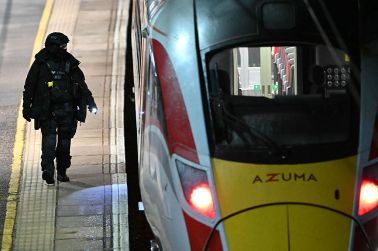One of the great things about spending the summer holidays in England is that it gives you an opportunity to experience life in the country. All year, Caroline and I dream about moving out of London and spend hours scouring property websites to see what we could buy if we sold our house in Acton. But after a few days in Yorkshire or Suffolk, all our bucolic illusions are shattered. Suddenly, London doesn’t seem so bad after all.
We’re currently in Norfolk staying with a friend near Burnham Market — known locally as ‘Burnham Mark-up’ because everything is so overpriced. We went to a farmers’ market that charged twice as much as Tesco’s for fruit and vegetables on the grounds that they were ‘organic’ and ‘locally grown’: code for ‘bruised’ and ‘misshapen’. A peach that looked like a cross between a doughnut and a silicone breast implant cost £1.75.
One of the characteristics of places like Burnham Mark-Up is that the locals are constantly complaining about the ‘weekenders’ with their spotless Range Rovers and ‘city dogs’ and, at the same time, never waste an opportunity to milk them for every last penny. Visitors from London are always made to feel slightly unwelcome in spite of the fact that we’ve been propping up the local economy for decades. The man we’re staying with, a London refugee who lives here all year round, says the upside of this attitude is that when you are eventually accepted it feels that much more special. But is it worth putting up with all that grief just so the barman in the local pub will return your greeting after five years of monosyllabic grunting?
Then there’s the difficulty of getting from A to B. Asking a local for directions is out because they will always reply, ‘I’m not from round here.’ That translates as, ‘I don’t live within a 100-yard radius of this exact spot — and even if I did, I wouldn’t lift a finger to help yuppie scum like you.’ Satnav doesn’t help because no matter how cunning the route you’re always going to get stuck behind some lone cyclist huffing and puffing his way up a gentle incline, in spite of the fact that he’s on a titanium racing bike and dressed from head to toe in Lycra that’s been personally autographed by Chris Froome. I cycle everywhere in London and am constantly at war with taxi drivers. But after a few days in the country I know exactly how they feel.
What’s that you say? Why not walk to the local pub instead? Chance would be a fine thing. It’s one of the enduring myths of the English countryside that it’s riddled with National Trust footpaths and ancient bridle ways, each one involving a rare species of bird and a spectacular view. In fact, walking anywhere is virtually impossible. Fields are nearly always protected by electric fences and what few pavements there are quickly peter out. That wouldn’t matter if the preferred method of transport for the locals wasn’t a 15-year-old Subaru Impreza that has been carefully modified so it can’t go at less than 90mph. It doesn’t help that the drivers are drunk 50 per cent of the time. If you have four children aged ten and under, going for a ‘walk’ in the country is a form of Russian roulette.
Apart from the cars, though, everything in the country is much slower than it is in London. Rural evangelists like Hugh Fearnley–Whittingstall go on and on about the different pace of life and how much happier and relaxed you feel when your life is attuned to nature’s rhythms. What they neglect to mention is the five-second delay between asking someone a simple question such as ‘You don’t have the time do you?’ and getting a response. It’s as if their brains resemble one of those rusty old tractors that has been abandoned in a field and now serves as a bird’s-nest-cum-flowerpot.
None of this would matter so much if you were able to get an occasional fix of city life by going on Twitter or checking your emails. But quite apart from poor network coverage and the scarcity of Wi-Fi — far rarer than the lesser-spotted cormorant — it appears to be against the law to connect to the internet in the country. I don’t mean you’ll be arrested, which is unlikely because rural England is almost entirely unpoliced. I mean that if you get out your iPhone in public, you immediately attract gamma-rays of hostility from everyone in the immediate vicinity.
No, after a few days in some rural idyll, the litter-strewn streets of Acton begin to look very appealing.







Comments